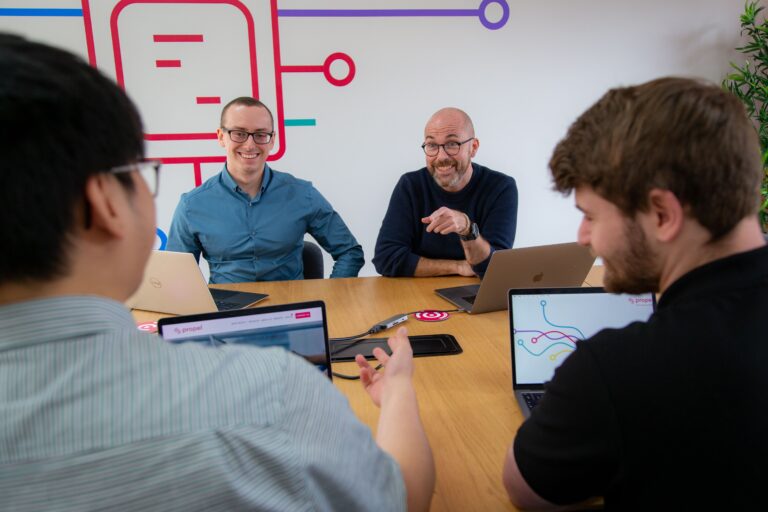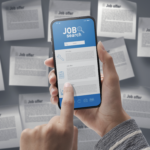The mental wellbeing of workers is of paramount importance. Not only is it a good thing to support employees so that they are in a good place as individuals, but there are major benefits to the workplace that come as a result.
It’s well documented that having a workforce that is healthier, not only physically but also mentally, will result in better work. However, the supply and demand of therapy – a crucial tool in improving one’s mental health – must be addressed. There is simply a higher level of interest in, and need for, therapy, but there are not enough available therapists.
People cannot just sit and wait – this would be extremely detrimental to their mental health. And so, we need to look for an alternative solution which can bridge the supply and demand gap. As a technologist and mental health advocate, I believe recent advances in AI present an opportunity to solve this problem.
Interestingly, AI has been around for quite some time, in fact, the first program was written in 1951, but the sudden explosion of modern AI took place at the beginning of 2023, coinciding with the meteoric development of OpenAI. Ever since then, the predominant topic of discussion has centred on how to boost productivity through the application of AI.
AI is already having a huge influence on today’s workplaces. AI is currently revolutionising the way we work by streamlining and automating routine and monotonous operations using machine learning and automation techniques. As a result, workers can devote their attention to more value-add and imaginative endeavours, thanks to the improved productivity, accuracy, and efficiency that AI brings.
However, bringing back to the issue at hand – the significant supply and demand issue in the NHS with regards to therapy, and the need for better mental wellbeing within the workplace – can AI be used to increase productivity, not from doing or supporting the work, but by supporting people’s mental wellbeing?
Chatbots powered by AI are already helping people with the problems and worries they face. Tech savvy early adopters are reaching out to them for comfort and guidance through the medium of conversation. However, few AI systems have been designed to provide personalised mental wellbeing support, and many use the conversations for their language learning algorithms.
On the other hand, therapists are trained expressly for this kind of help – and they are required to adhere to stringent criteria on confidentiality. Therapists are trained in techniques such as cognitive behavioural therapy (CBT) and coaching and can help guide a conversation to support an individual in exactly the way that they require it to be supported at that precise moment in time.
I believe that AI provides an ideal basis for building scalable and sustainable tools to complement human therapists. Consider the underlying stigma that is attached to participating in therapy. While it is true that we, as a society, are getting better and more accepting of it, the UK is still not quite at the level of the US, where people are extremely accepting of such support.
As such, could AI powered tools help people who have reservations about accessing therapy? They may, in fact, help these very people since there is no human on the other side. This frees up the individual to be as open as they want, with no concerns of judgement. Of course, therapists do not judge either, but these hard-to-reach individuals may not feel this way, and so AI enabled support is a great solution.
There’s also a broad spectrum of both the kind of support that people need and the degree of immediacy with which they require it. Some people are likely to have a clear and immediate need for assistance, while other people might do just fine with a gentle touch.
It’s conceivable for AI powered tools to carry out the function of a triage system to ensure that everyone has access to treatment. This would allow for those individuals who have priority needs to be sent to human therapists, with AI powered tools providing the relief to the supply and demand issues, so such slots open up.
I have been working on this particular issue for a considerable amount of time now. It has led to the creation of an AI assistant called EMMA, explicitly designed for providing support for mental health issues, both in and outside of the workplace.
EMMA is the first AI assistant that, to my knowledge, is fully focused on providing help for mental wellbeing. The AI has been trained in many therapeutic procedures and adheres to international guidelines that have been established by psychologists.
Available on Slack and Teams within work, and on mobile and web app outside of it, EMMA provides mental health support. 24/7 for a healthy and more productive workforce.
So, while AI is typically associated with boosting productivity through minimising the amount of work that needs to be done, I feel we have, until now, been missing a real opportunity to improve a workforce’s productivity through improved mental wellbeing – also achieved through the use of AI.
A healthier workforce, of both body and mind, has always been known to lead to increased productivity and better results for the company. So, when we look at using AI for better productivity, the obvious next step is to improve mental wellbeing through the technology.
I’ve taken the first step in the development of EMMA, and I look forward to seeing more AI applications supporting the same goal.









